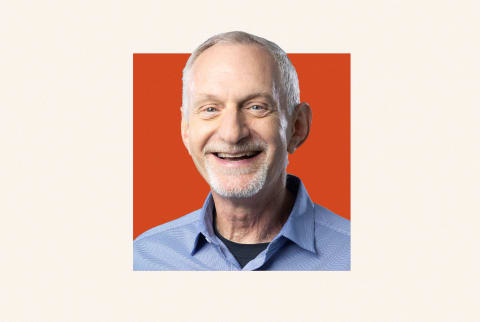Advertisement
How To Genuinely Connect With Others & Supercharge Longevity, From An MD


According to Robert Waldinger, M.D., quality relationships are the foundation of a longer, happier, healthier life. And he would know: The psychiatrist, psychoanalyst, Zen practitioner, and author of The Good Life currently runs the longest study of adult life that's ever been done. Yes, you read that right. Waldinger is the director of the 85-year-long Harvard Study of Adult Development, where he investigates over 2,000 participants to answer the question, What makes a good life? (It turns out, your relationships play a pretty powerful role.)
Of course, creating and maintaining successful relationships is a lot easier said than done. In fact, Waldinger says we're all a bit lacking when it comes to deep social connection—so on this episode of the mindbodygreen podcast, he offers a few tips to create genuine, long-lasting bonds. Find his advice below:
Don't forget about casual companionship.
Yes, deep relationships matter when it comes to your health—but those casual, everyday experiences may matter just as much. "We didn't think they did, but people have begun to study this very systematically1," Waldinger explains. "The people you might see every day but don't really know that well or the people you might see once a week—[like] the cashier at the supermarket… When you exchange pleasant words with those people, you get little hits of happiness that turn out to be important for your sense that life is good."
That said, say hello to your neighbors. Chat with the coffee shop barista. Exchange words with the person who delivers your mail. These interactions may sound simple, but they have profound effects on your well-being.
Frequent shared spaces.
You hear it all the time: If you want to make friends, just put yourself out there! Waldinger encourages this literally: "If you put yourself in situations where you encounter the same people repeatedly, you're more likely to strike up a conversation, and you're more likely to continue those conversations or deepen them," he says. Perhaps that's another reason why community-based wellness centers have become so popular over the last year.
His advice goes hand in hand with finding a sense of purpose. If you engage in an activity you care deeply about—volunteering, gardening, a book club, or even a bowling league—you will likely meet people with those shared interests. "You have something in common, and you're more likely to rub elbows over and over again," he adds. "It doesn't matter what it is. Just find something you love, and see if you can do it alongside other people."
Make online connections better.
Online connection is better than no connection at all—you just have to figure out how to truly deepen those online relationships. See, technology allows you to be impersonal (it's easy to pretend you're just a floating head in cyberspace talking to another floating head on-screen). "Many of us have to figure out how to engineer a personal connection that would naturally happen [for example] in the office around the coffee machine," says Waldinger.
And in case you need a real-world example: "Vivek H. Murthy, M.D.,2 our U.S. Surgeon General, started something at his [virtual] staff meetings, where once a week one person takes five minutes to talk to the group about something in their personal life they'd like people to know about," he explains. "It generates other conversations because people know about each other's lives. So that's just one small way, but we want to try to build in more personal connection, even if it's online."
Nurture the relationships you have.
"We take for granted that relationships will just take care of themselves," Waldinger adds. Make no mistake: Even the deepest, longest relationships require some maintenance. "It turns out, friendships wither and die not because there's anything wrong with the relationships, but just because they get neglected," he adds.
Consider this a sign to call your loved ones. Better yet: "Think of somebody you haven't seen and kind of miss," instructs Waldinger. "Take out your phone and just send them a little text saying, I was just thinking of you and wanted to say hi. Just do that and see what comes back. [It] takes you 30 seconds, and it's a way to start that social fitness routine."
The takeaway.
Don't ignore the power of social connection when it comes to longevity. Plenty of experts (Waldinger included) believe purposeful relationships are paramount for a long and healthy life. So go ahead and share this episode with a friend—it might benefit your well-being.
We hope you enjoy this episode sponsored by NerdWallet! And don't forget to subscribe to our podcast on iTunes, Google Podcasts, Spotify, or Amazon Music!